When it comes to email marketing, there's no denying how powerful this channel can be.
According to a 2019 Campaign Monitor report, for every $1 you spend, you earn $42 – an astonishing return on investment.
If you're scaling a business, you may have relied on personal or business email providers like Gmail and Outlook in the past. However, they're not equipped to manage large volumes of email and provide the data needed to track performance.
That's where a bulk email service can come in.
Discover the key features you should find in a bulk email service and the top providers in the market.
A mass email service helps you reach a large audience and nurture them one email at a time. In addition to getting direct access to your customer base, you can also track how your emails perform and test various methods to increase clicks and conversions.
While traditional advertising methods, such as print ads and direct mail, can have high return on investment (ROI), it can be difficult to understand how consumers are interacting with your materials. With a bulk email service, you can find out what attracts consumers and what elements lead to higher conversions.
Furthermore, many bulk email services offer automation tools – think workflows and sequences – to help you move leads down the funnel and retain your current clients.
Using a personal or business email can work in the first few months of starting a business but will quickly become ineffective as you grow.
Reasons to Send Bulk Emails
Not sure if it's the right time to try a bulk email service? The first question you should ask is, "Is our brand investing in email marketing this quarter/year?"
If the answer is yes, then that's your sign to invest in an email service.
Here are specific examples of when you would send out a mass email to your subscribers:
- Sales promotion – Say you want to promote discounts on certain products or services, sending a mass email to your subscribers is a great way to generate sales.
- Newsletter – Do you want to send out exclusive content to your subscribers? Then a newsletter is the way to go.
- Product updates – A great way to announce a new product feature or line is via email. You can include previews to build some excitement and include calls-to-action (CTA) for conversions.
- Announcements – Are you updating your hours, prices, or services? Or perhaps there's been a change in your policy. Notifying your subscribers in an email blast is an effective way to spread the news.
With every email you send to subscribers, you'll want to keep in mind your goals, your audience, the time and day, personalization, and compliance with data protection laws.
You want to invest in an email marketing service, but you're not sure what to look for - here's your guide.
These are the key features you should look for in a bulk email service. Some of these features will only be available in a premium package. However, others will be included in the standard or free versions.
1. User Behavior Tracking
The number one tool you'll need in any bulk email service you select is reporting capabilities. Because what's the point of investing your time in designing and sending emails if you can't see how they performed?
You should be able to track key email metrics, such as:
- Open rate
- Unique clicks
- Click-to-open rate (CTOR)
- Clickthrough rate (CTR)
- Unsubscribe rate
- List growth rate
- Bounce rate
Email providers with advanced reporting features may also allow you to track revenue per subscriber and revenue per email.
2. Drag-and-Drop
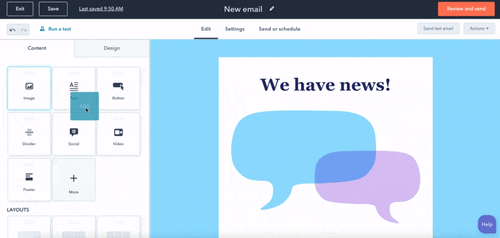
A drag-and-drop tool makes designing your email easy. This intuitive feature allows you to select an element from the sidebar, like an image, quote, or button, and drag it to a section in your email.
This will save you time as you determine the best flow for your email and move things around.
3. Email Segmentation & Personalization
Segmenting your emails ensures that your emails are reaching the right people at the right time.
You should look for a bulk email service that allows you to segment your subscriber list based on:
- Location
- Actions taken in the email
- Purchase history
- Type of subscriber (ex: prospect vs current customer)
When you segment your list, you can get higher engagement rates, as the content will be more relevant to your recipients.
4. Split Testing
Split testing, also known as A/B testing, is a great way to understand what resonates with your audience.
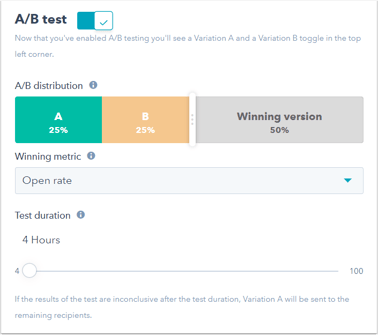
This feature is particularly helpful if you are struggling to generate high open rates and get subscribers to convert.
By testing out different subject lines and elements within the body of your email, you can determine what works best.
5. Automation
When you're scaling your email list, the name of the game is automation.
Say you have a content offer and you want to send a sequence of emails to leads after they've downloaded the offer. With an automation tool, you can pre-select which emails will go out, in what order, and how many days in each email.
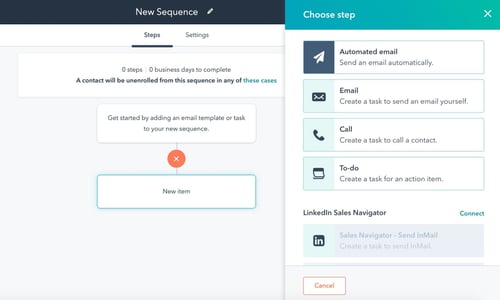
Once you complete the set-up, the automation does all the work for you – nurturing your subscribers and moving them down the buyer's journey.
This hands-off approach allows you to focus on strategy instead of the tedious work of sending out emails. It can also become impossible to keep track of each subscriber's stage in the journey and send the appropriate email.
With automation, you can take the guesswork out of the process.
6. Design Templates
If you're like me, designing isn't your forte. So, when designing an email, you'll take all the help you can get.
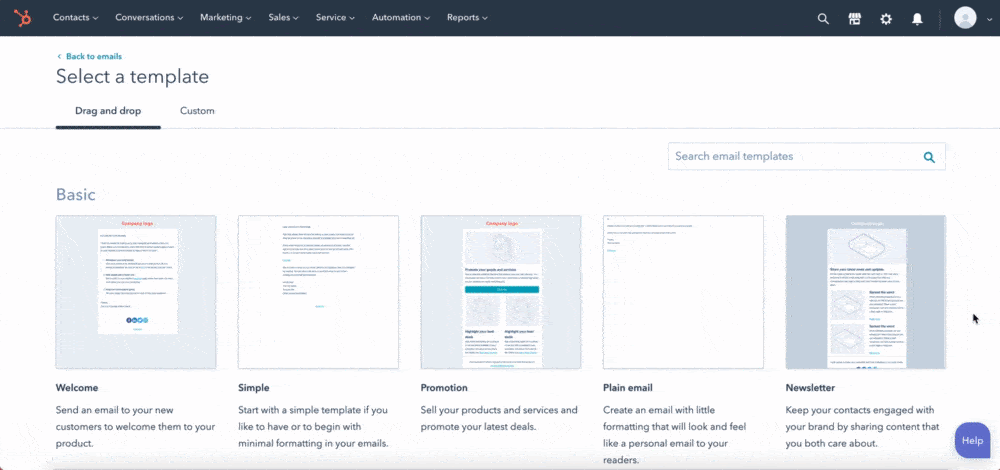
Having a design template based on the type of email you want to send can not only save you time but ensure you're following email best practices. This is particularly helpful if you have limited experience designing emails and are just starting out.
What's great about having a template is that it's a foundation. You can customize it to fit your needs, but it provides a blueprint from which to work.
7. High Email Delivery Rates
Imagine you work so hard on an email campaign, and it never reaches your subscribers' inboxes. Frustrating right?
That's why it's important to verify your provider's email delivery rates. You'll want to select a service with high email delivery rates, as close to 100% as possible.
Best Bulk Email Services
1. HubSpot's Email Marketing Tool
With HubSpot, you can create, customize and optimize your emails without any coding or design experience.
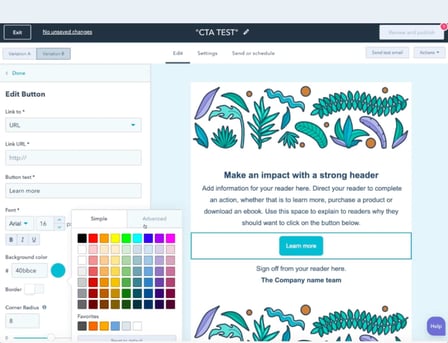
You can send up to 2,000 emails a month, and that doesn't include test emails to check functionality. The platform offers a user-friendly interface and tools like a drag-and-drop tool to easily design your email, tokens to personalize every email, and an a/b testing feature.
In addition, you can create custom reports based on the data you want to collect and analyze.
The best part? It's free.
2. ConvertKit
As their name suggests, the platform is designed to help you earn more conversions and generate more revenue.
ConvertKit is known for its advanced automation tools, including custom email funnels, smart filters, and link triggers.
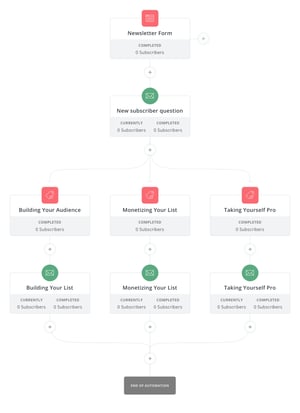
Furthermore, the platform has a 98% delivery rate, ensuring that your emails will always reach your subscribers. In addition, the average open rate for ConvertKit emails is an astonishing 30%, according to their website.
ConvertKit offers a free version of its platform all the way up to custom pricing for enterprise-level businesses with over 365,000 subscribers.
3. Mailchimp
Mailchimp is a great email service for those who are just starting out in email marketing.
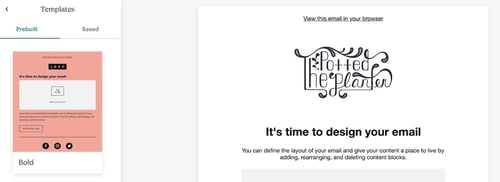
The platform offers a user-friendly interface and over 100 templates to choose from.
With their free plan, you can send up to 10,000 emails a month to 2,000 contacts – a great option for small to midsize businesses. As your business grows, you can scale to the premium version, which includes unlimited audiences, multivariate testing, and advanced segmentation with up to 200,000 contacts.
4. Drip
If you have an ecommerce business, consider Drip for your email marketing.
The platform offers pre-built email templates that you can customize to your liking and a user-friendly workflow builder for automation.
In addition, you can schedule automation based on actions your subscribers take. For instance, viewing a product, abandoning their cart, and making a purchase.
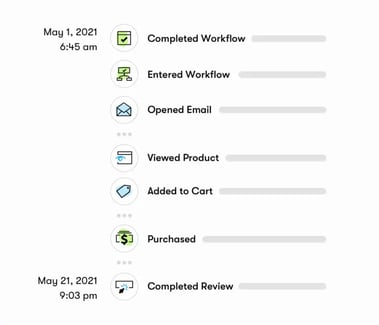
With Drip, you can easily integrate your online store (like Shopify, Magento, and WooCommerce) to make data gathering easier and help you design more targeted emails.
Pricing starts at $19 and goes up based on how many subscribers you have.
5. Insycle
Insycle doesn't fall under the email provider list. However, this software does work in tandem with providers like HubSpot and Mailchimp to keep your contact list clean.
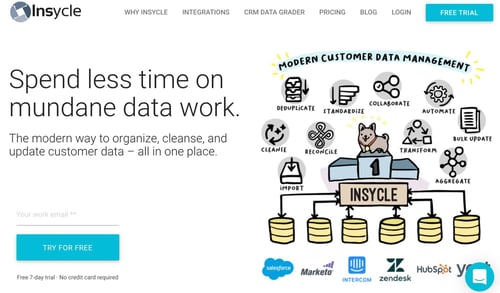
One of the downsides of having a subscriber list is the potential for duplicate contacts. This can not only impact your metrics (and consequently your data) but also make it difficult to tailor your emails.
Insycle allows you to clean your contacts in bulk, merge duplicate ones, and avoid overwriting data.
Knowing what to look for in an email service is half the battle. Now that you have a list of key features and few tools to choose from, you can find a platform that helps you grow your email list and generate revenue.
7 Features You Need in a Bulk Email Service [+ Top 5 Best Providers] was originally posted by Local Sign Company Irvine, Ca. https://goo.gl/4NmUQV https://goo.gl/bQ1zHR http://www.pearltrees.com/anaheimsigns
![→ Download Now: The Beginner's Guide to Email Marketing [Free Ebook]](https://no-cache.hubspot.com/cta/default/53/53e8428a-29a5-4225-a6ea-bca8ef991c19.png)
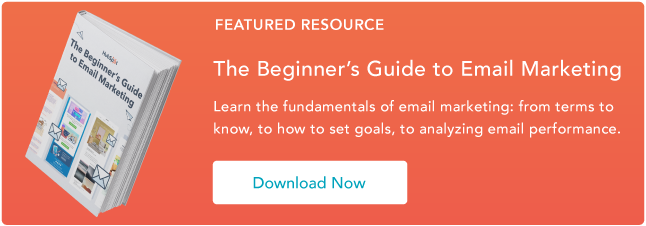
No comments:
Post a Comment